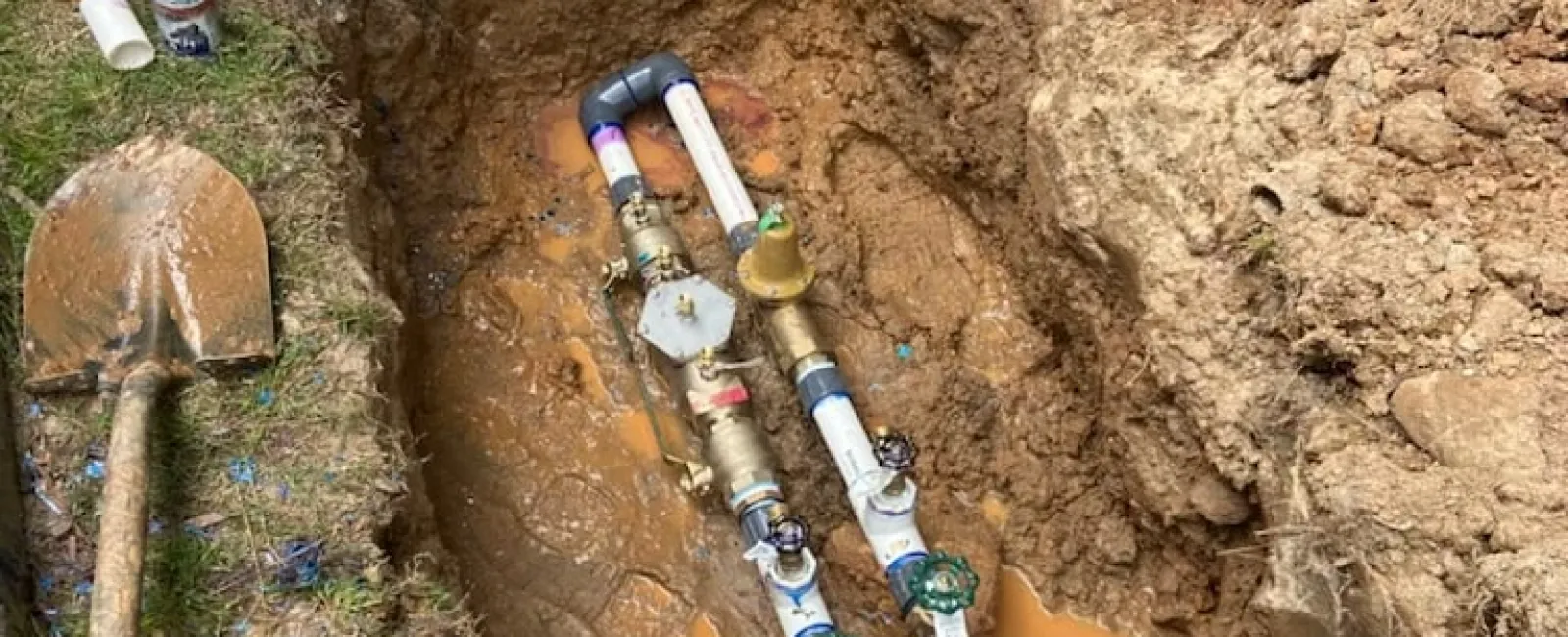Are you aware that the chemicals your neighbor uses inside their home or business could come into contact with your drinking water? Here's how:
What Is Backflow?
Backflow is the unwanted reversal of water or other substances in a pipeline or plumbing system. This can be dangerous because it can allow contaminants to enter the water supply, potentially posing a risk to public health.
Various factors, such as a change in pressure in the system, a leak or break in the pipes, or the use of specific equipment or appliances, can cause backflow.
To prevent backflow, most networks use prevention devices that are designed to automatically stop the flow of water if a potential backflow situation arises. Law often requires these fixtures to be installed in specific systems, such as those connected to a public water supply or facilities that use hazardous chemicals like pesticides.
What Is A Backflow Test?
To ensure the proper functioning of backflow prevention systems, licensed professionals must have them tested at least annually by licensed professionals. These individuals have received training in the correct testing procedures and use specialized equipment to guarantee the accuracy and reliability of the test results.
The testing process typically involves the following:
- Inspection of the backflow prevention device
- Measurement of pressure and flow rates
- Performance of functional tests to ensure that the backflow prevention device is operating correctly.
In addition to the annual testing, backflow prevention devices should be tested after repairs and if backflow occurs. This can include a water main break or a change in pressure in the system.
Lastly, the frequency of backflow testing depends on the type of system and the risk of contamination. Some networks may need to be tested annually, while others may only need to be tested every few years. It's also essential to follow the guidelines and regulations your local water authority sets to ensure that the backflow prevention devices are properly maintained.
Will Your Water Be Shut Off?
It's generally recommended to shut off the water supply during a backflow test. The reason? It allows for accurate results and prevents any leaks or damage to the system during testing.
Equally important, before shutting off the water supply, it's advisable to turn off any appliances or equipment that use water, such as washing machines or dishwashers.
Why Is Backflow Testing Important?
Here are five reasons why backflow testing is necessary:
- To ensure compliance with local laws and regulations. In most areas, backflow prevention devices are required by law to be installed in specific plumbing and piping networks. Again, annual backflow testing may be necessary to ensure that the fixtures function correctly.
- To prevent contamination of the water supply. As noted earlier, backflow prevention devices are designed to avoid the reversal of the flow of water or other substances in a plumbing or piping system. This helps prevent contamination of the water supply with potentially harmful substances, such as chemicals or sewage.
- To protect public health. Backflow testing helps ensure the water supply's safety and integrity, which is critical for protecting public health.
- To identify and fix problems. Backflow testing helps identify issues with the backflow prevention devices or the piping network. As a result, any necessary repairs can be performed on time and prevent future problems.
- To prevent costly damage. Neglecting backflow testing and maintenance can lead to expensive damage to the plumbing system. On the other hand, by having regular backflow testing performed, you can avoid pricey repairs and save money in the long run.
How Much Does Backflow Testing Cost?
The national averages can give you a general idea of how much a backflow test will cost. However, here are some of the factors that will determine your final price:
- Local labor hourly rates.
- Costs of materials and equipment.
- Local permits.
- Inspection and building fees.
- Materials and supply sales taxes.
- Any general contractor fees (if applicable).
Now Do It
As seen above, backflow testing is critical to maintaining the safety and integrity of plumbing and piping systems. It involves the periodic inspection and testing of backflow prevention devices.
The best part? Mr. Rooter offers accurate backflow testing, repair, replacement, new installation and any other service you might need for your backflow prevention device. Schedule your backflow test by calling the team at Mr. Rooter.
